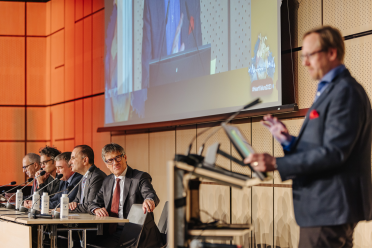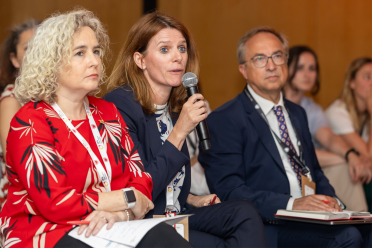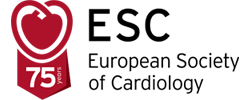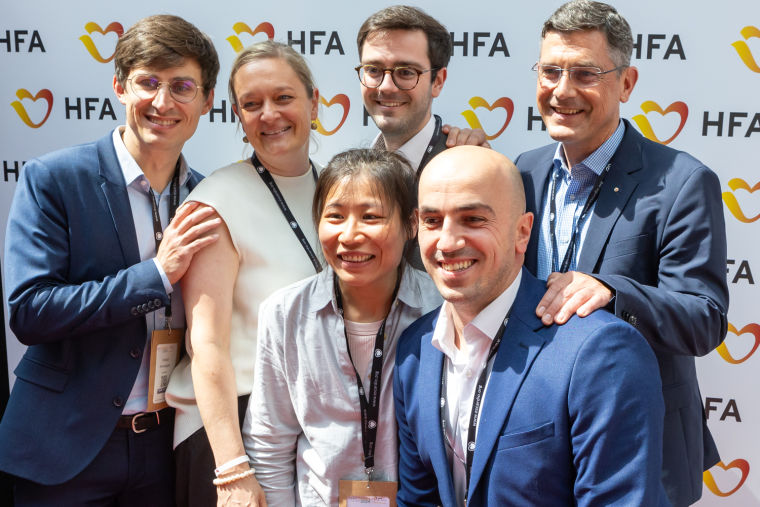In 2025, your Heart Failure congress will be held in the bustling city of Belgrade at the Sava Centar that has been recently renovated to outstanding standards with top-class equipment and facilities.
The HFA is proud of the tremendous success achieved in previous congresses and is currently working to bring you an amazing scientific gathering.
Likewise in the previous years, interactivity, dynamism, and top science are the major features.
 The programme will include world-renowned experts from all continents, addressing not only heart failure, but also imaging, electrophysiology, and interventional cardiology.
The programme will include world-renowned experts from all continents, addressing not only heart failure, but also imaging, electrophysiology, and interventional cardiology.
The most important updates in the latest science will reveal the results from the latest clinical trials and registries, shown during several Late-Breaking Science sessions.
 Heart Failure 2025 will highlight interactivity, clinical cases, how-to, and hands-on experience.
Heart Failure 2025 will highlight interactivity, clinical cases, how-to, and hands-on experience.
More than 80 scientific sessions will take place in Belgrade, with an extremely comprehensive and didactic programme featuring international experts.
 The young community's growing interest in heart failure has led to a great representation at the congress.
The young community's growing interest in heart failure has led to a great representation at the congress.
A dedicated track with sessions of interest will complement other young community events as well as career guidance from the leading experts.

After the success of last years edition, Heart Failure
2025 once again featured a lecture room devoted exclusively to interactive sessions and focusing on Clinical Cases and How-To sessions.

Heart Failure is the leading and largest educational event in heart failure world-wide.
It is not only an excellent opportunity for scientific exchange, but also a unique chance for networking among academy, hospitals, and companies for the best of heart failure patients.
We encourage you to take part by submitting an abstract and clinical case and register early for best savings.
On behalf of the HFA Board and the Heart Failure Congress Programme Committee:
Prof. Marco Metra, HFA President 2024 - 2026
Prof. Wilfried Mullens, HFA President-Elect 2024 - 2026
Prof. Petar Seferovic, Congress Programme Co-Chairperson 2025
Prof. Arsen Ristic, Congress Programme Co-Chairperson 2025
Childcare
HFA is delighted to offer all parents a professional childcare service for the duration of the congress.

Book a place for your child(ren) here
Your Safety at Heart Failure 2025 – Belgrade
Your safety is our top priority. In light of recent demonstrations in parts of Serbia, we commissioned a detailed risk assessment by an independent international security consultancy.
The assessment confirms that Belgrade has no significant threat to international delegates or large-scale events such as ours. The Sava Center, located in New Belgrade, remains a safe and secure venue that continues to host major events successfully. Demonstrations have been largely concentrated in other parts of the city and are not expected to impact the congress directly. While some transport disruption is possible – particularly for those staying in central Belgrade – any inconvenience is expected to be minimal, as demonstrations typically take place around noon.
We are maintaining close contact with local authorities and our security partners to ensure the event runs smoothly for all involved.
We look forward to welcoming you to Belgrade for what promises to be an inspiring and impactful event.



 Our mission: To reduce the burden of cardiovascular disease.
Our mission: To reduce the burden of cardiovascular disease.